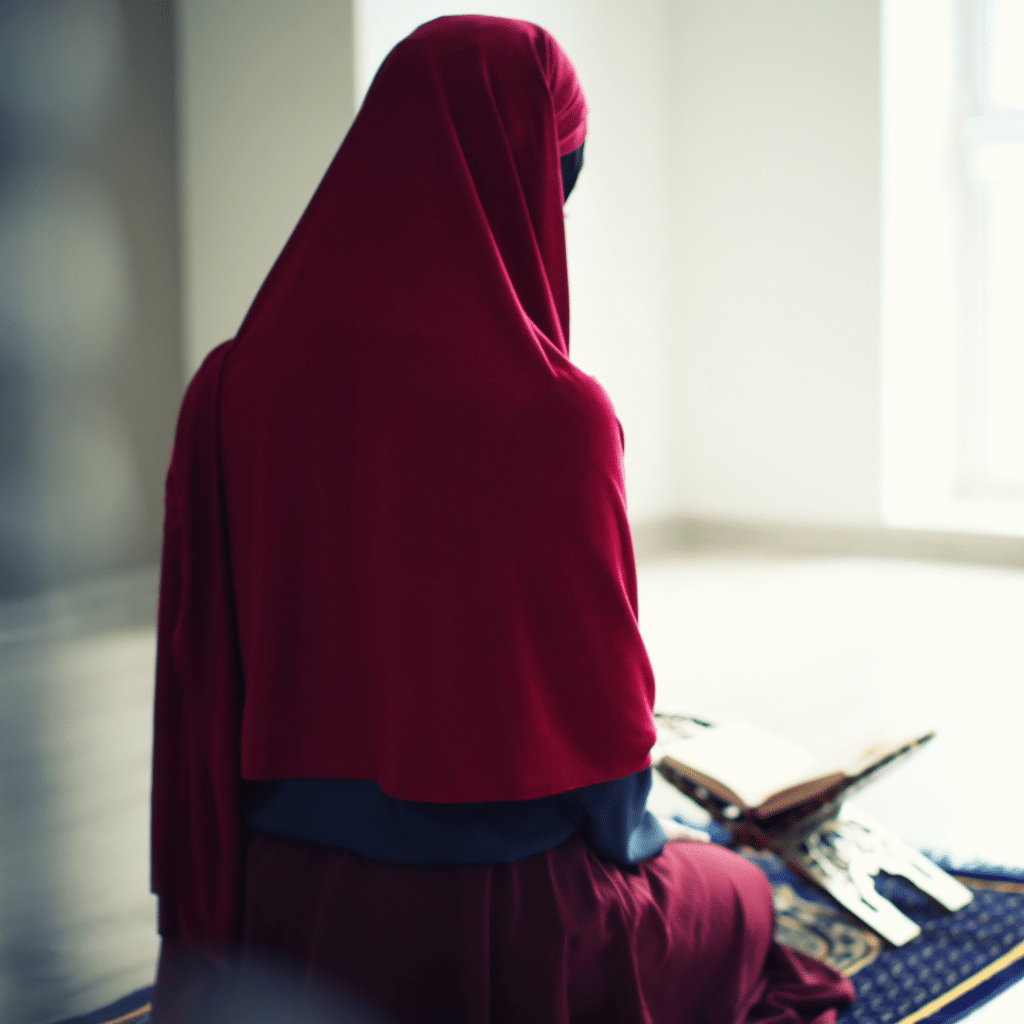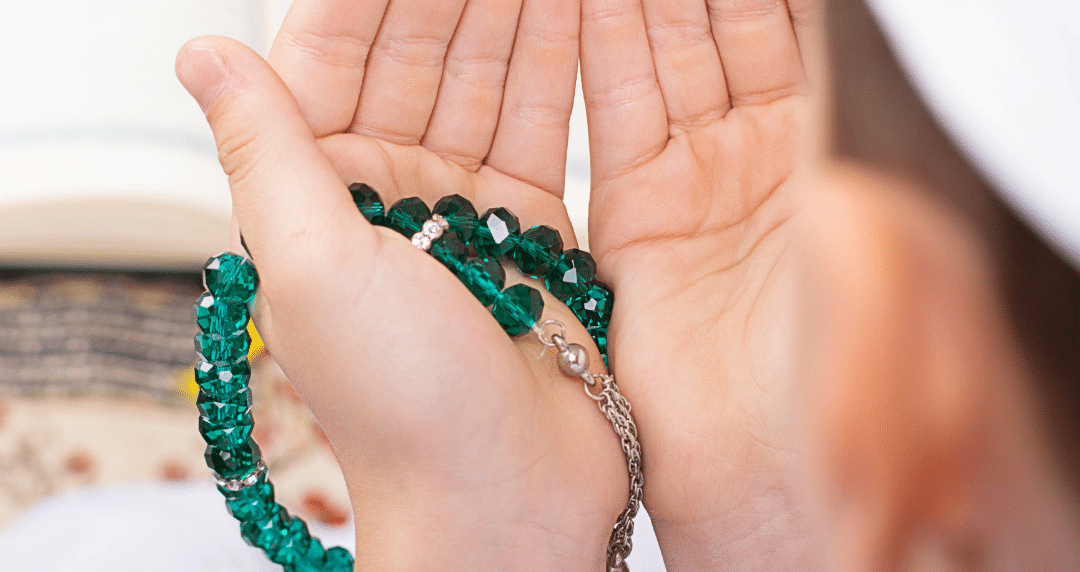Ramadan is a sacred time of reflection and spiritual growth for millions of Muslims around the world. As you embark on this holy month, you may be seeking ways to enhance your fasting experience and deepen your connection with Allah. One powerful practice that can aid you in this journey is the recitation of specific duas tailored for fasting during Ramadan.
These special prayers, known as duas for fasting, are not only a source of comfort and solace but also a means of strengthening your devotion and seeking blessings during this auspicious time. By incorporating these supplications into your daily routine, you can seek guidance, forgiveness, and blessings from the Most Merciful.
In this blog post, we will explore the significance of duas for fasting in Ramadan and how they can enrich your spiritual experience. Join us as we delve into the profound meaning behind these supplications and discover the transformative impact they can have on your fasting journey. Let us embark on this enlightening exploration together, as we seek to draw closer to Allah through the power of prayer.
Understanding the Significance of Dua in Islam
Dua, or supplication, plays a pivotal role in Islam as a means of communication between the believer and Allah. It is a powerful tool that allows individuals to express their gratitude, seek guidance, and request blessings from the Almighty. During the holy month of Ramadan, the significance of dua is heightened, offering Muslims a unique opportunity to deepen their connection with their faith.

The Role of Dua in Worship
In Islam, dua is considered an act of worship that showcases one’s dependence on Allah and their acknowledgment of His limitless power. It serves as a way to express one’s innermost thoughts and desires, seeking solace and divine intervention in times of need. By engaging in dua, believers demonstrate humility and faith, recognizing that only Allah has the power to grant their wishes.
When making dua, Muslims are encouraged to be sincere and earnest in their supplications, trusting in Allah’s wisdom and mercy. It is a moment of vulnerability and surrender, where one lays bare their hopes and fears before the Creator, knowing that He is the ultimate source of guidance and support. Through dua, individuals find solace and strength, reaffirming their belief in Allah’s benevolence and compassion.
The Virtue of Making Dua During Ramadan
Ramadan is a special time for Muslims worldwide, marked by fasting, prayer, and reflection. It is a month of spiritual growth and self-discipline, during which believers strive to strengthen their connection with Allah through acts of worship. Making dua during Ramadan holds particular significance, as it is believed that the gates of heaven are open, and prayers are more readily accepted.
The Prophet Muhammad emphasized the importance of dua, stating that it is the essence of worship. By invoking Allah’s blessings and seeking His forgiveness during Ramadan, believers not only purify their hearts but also draw closer to their Creator. The act of making dua fosters a sense of humility and gratitude, reminding individuals of their reliance on Allah’s mercy and grace.
In conclusion, the practice of dua in Islam is a profound and essential aspect of worship, enabling believers to seek guidance, express gratitude, and seek blessings from Allah. During Ramadan, the significance of dua is heightened, offering Muslims a unique opportunity to deepen their spiritual connection and draw closer to their Creator through sincere supplications and heartfelt prayers.
The Importance of Fasting in Ramadan
Ramadan isn’t just a month of fasting by abstaining from food and drink during daylight hours for a whole month; it holds a much deeper significance for Muslims worldwide. This holy month is a time for self-reflection, spiritual growth, and strengthening one’s connection with Allah. Let’s delve into why fasting in Ramadan is such a vital practice and the spiritual benefits it brings.
Brief Overview of Fasting in Ramadan
Fasting in Ramadan is one of the Five Pillars of Islam, emphasizing self-discipline, empathy for the less fortunate, and devotion to Allah. From dawn until dusk, Muslims refrain from eating, drinking, smoking, and engaging in sinful behavior to purify their souls and focus on their faith. It is a time of heightened spirituality and dedication to prayer and acts of kindness.
Spiritual Benefits of Fasting
Fasting in Ramadan goes beyond physical abstinence; it nourishes the soul and cultivates virtues such as patience, gratitude, and empathy. By foregoing worldly pleasures, believers learn self-control and discipline, strengthening their willpower and forging a deeper connection with Allah. It is a time for introspection, repentance, and seeking forgiveness for past wrongdoings.
The act of fasting instills a sense of unity among Muslims, as they collectively partake in this spiritual journey. It fosters a sense of community, compassion, and solidarity as individuals come together to break their fasts and share meals with loved ones. This shared experience reinforces bonds and reinforces the values of generosity and hospitality.
In essence, fasting in Ramadan is not just a physical observance but a transformative spiritual practice that purifies the soul, fosters self-improvement, and deepens one’s relationship with Allah. It is a time of reflection, prayer, and renewal, offering believers a chance to grow closer to their faith and embody its teachings in their daily lives.

The Essence of Dua for Fasting in Ramadan
Picture this: You sit quietly, your heart brimming with thoughts, your lips moving in whispered words of prayer. This is the essence of dua during the blessed month of Ramadan. Let’s delve into the significance of connecting with the Divine through dua and how it serves as a profound tool for seeking forgiveness and guidance.
Connecting with the Divine Through Dua
Imagine dua as your hotline to the heavens, a direct connection to the Almighty Allah. Through the act of supplication, you open your heart, pouring out your hopes, fears, and gratitude. It’s like having a heartfelt conversation with the Creator, a moment of intimacy in the chaos of the world. When you raise your hands in prayer during fasting in Ramadan, you’re reaching out to a higher power, seeking solace and blessings.
Dua as a Tool for Seeking Forgiveness and Guidance
Dua is not just about asking for material needs; it’s a profound tool for seeking forgiveness and guidance. When you utter prayers of repentance during Ramadan, you acknowledge your shortcomings and seek Allah’s mercy. It’s a powerful act of humility and self-reflection. Moreover, dua serves as a compass in the journey of life, guiding you through challenges and uncertainties. Whether you’re seeking clarity in a moment of confusion or strength in times of weakness, supplication aligns your heart with Allah’s wisdom.
In essence, dua during fasting in Ramadan is more than mere words; it’s a spiritual practice that nourishes the soul, uplifts the spirit, and strengthens your bond with Allah. So, as you embark on this sacred journey, remember the transformative power of dua – a bridge between you and Allah, a beacon of hope in the darkness, and a source of endless blessings. Open your heart, raise your hands, and let your prayers soar into the heavens, for Ramadan is a time of mercy, forgiveness, and divine connection.
Best Times to Make Dua While Fasting
Wondering about the best times to make dua during the blessed month of Ramadan? Well, let’s dive into two special moments that are ideal for connecting with the Almighty through prayer.
Suhur and Iftar: Ideal Moments for Dua
Suhoor time, the pre-dawn meal before fasting begins, is a prime time to make dua. As you wake up early to nourish your body for the day ahead, take a moment to nourish your soul with heartfelt supplications. Your mind is clear, your heart is pure, and your intentions are sincere. Use this tranquil time to pray for blessings, forgiveness, and guidance.
Similarly, Iftar, the breaking of the fast at sunset, is another opportune moment for dua. Your body rejoices in the much-awaited meal, and your spirit is uplifted by the act of worship. Whether alone or with loved ones, seize this moment of gratitude and humility to pour out your desires and gratitude to the Creator. Let your dua during Suhur and Iftar reflect your deepest hopes and gratitude.

The Last Third of the Night: A Special Time for Dua
The last third of the night, when the world slumbers and the silence is profound, is a truly magical time for dua. While the stars twinkle above and tranquility envelops the earth, you have a direct line to the Divine. Wake up from your slumber, cleanse your heart, and engage in intimate conversation with your Lord. In this sacred time, when distractions fade away, pour out your fears, aspirations, and praises in the form of dua.
Take advantage of these auspicious times during Ramadan to elevate your spiritual connection through dua. Whether it’s the quiet moments of Suhur and Iftar or the profound stillness of the last third of the night, each opportunity is a gift to strengthen your bond with the One who listens to every whisper of your soul.
Tips for Enhancing the Impact of Your Dua
Praying and making dua are essential aspects of Ramadan, but have you ever wondered how to make your supplications even more impactful? Here are some tips to help you enhance the power and effectiveness of your dua:
Maintaining Sincerity in Your Intentions
When you raise your hands to make dua, ensure that your intentions are pure and sincere. Focus on seeking guidance, blessings, and forgiveness with a humble heart. Remember, it’s not just about the words you say but the sincerity behind them that truly matters. Let your intentions reflect your innermost desires and feelings, and watch how your dua becomes more heartfelt and meaningful.
Consistency and Perseverance in Dua
Consistency is key when it comes to making dua. Make it a habit to engage in supplication regularly, not just during every day of Ramadan but throughout the year. The more you persist in asking for Allah’s help and mercy, the stronger your connection becomes. Trust in His timing and keep making dua, even if you don’t see immediate results. Your perseverance will only strengthen your faith and resilience.
Supplicating with Gratitude and Humility
Approach your dua with a sense of gratitude for Allah’s blessing that you have received. Acknowledge the countless opportunities and favors Allah has bestowed upon you before asking for more. Cultivate a spirit of humility and submission, recognizing your dependence on His mercy and guidance. When you supplicate with gratitude and humility, you not only show appreciation but also open yourself up to receiving even more and most generous blessings as well as great rewards.
By maintaining sincerity in your intentions, consistently making dua, and supplicating with gratitude and humility, you can enhance the impact of your prayers and draw closer to Allah during the blessed month of Ramadan. Remember, dua is a powerful tool that can transform your life and bring you closer to your Creator.

Dua for Fasting in Ramadan
This special duaa is recited at the beginning of the fast:
Wa bisawmi ghadinn nawaiytu min shahri ramadan
I intend to keep the fast for tomorrow in the month of Ramadan.
وَبِصَوْمِ غَدٍ نَّوَيْتَ مِنْ شَهْرِ رَمَضَانَ
This dua is called iftar dua, and it’s recited at Iftar before proceeding to eat at iftar time:
Allahumma inni laka sumtu wa bika aamantu wa alayka tawakkaltu wa ala rizq-ika-aftartu
O Allah! I fasted for You and I believe in You and I put my trust in You and I break my fast with Your sustenance.
اللَّهُمَّ اِنِّى لَكَ صُمْتُ وَبِكَ امنْتُ [وَعَلَيْكَ تَوَكَّلْتُ] وَعَلَى رِزْقِكَ اَفْطَرْتُ
Embracing the Blessings of Dua Beyond Ramadan
Dua, or supplication, is a powerful act of worship that connects you directly to the Almighty, allowing you to seek guidance, blessings, and express gratitude. Beyond the sacred month of Ramadan, embracing the practice of dua in your daily life can bring immense spiritual growth and strengthen your bond with the divine. Let’s explore how you can incorporate dua into your routine and continue this practice for ongoing spiritual nourishment.
Incorporating Dua into Your Daily Routine
- Start and End Your Day with Dua: Begin each morning with a heartfelt dua, seeking guidance and blessings for the day ahead. Similarly, conclude your day by expressing gratitude for the blessings received and seeking forgiveness for any shortcomings.
- Integrate Dua into Your Tasks: Whether it’s before a challenging meeting, a journey, or a meal, pause to make a dua. Involve the Almighty in every aspect of your day, seeking His support and guidance.
- Create a Dua Journal: Keep a journal to track your duas. Writing down your supplications can enhance mindfulness and serve as a reminder of the blessings you’ve received.
- Utilize Moments of Distress and Gratitude: In times of difficulty or moments of joy, turn to dua. Pour out your heart to the Creator, seeking solace during trials and expressing gratitude during times of abundance.
Continuing the Practice of Dua for Ongoing Spiritual Growth
- Consistency is Key: Establishing a routine for dua nurtures spiritual growth. Consistency cultivates a stronger connection with the divine and deepens your faith.
- Dua for Others: Include prayers for your loved ones, community, and humanity in your supplications. Engaging in selfless dua for others fosters empathy, compassion, and unity.
- Reflect on Your Dua: Take time to reflect on the content and sincerity of your supplications. Engage in self-assessment and aim for spiritual improvement through introspection.
- Seek Knowledge: Enhance your understanding of the power of dua by studying its significance in Islamic literature and teachings. Knowledge amplifies the impact of your supplications and enriches your spiritual journey.
By integrating dua into your daily routine and maintaining this practice beyond Ramadan, you invite abundant blessings into your life, nurture your spiritual growth, and strengthen your connection with the divine. Let the power of dua be a guiding light in your journey toward spiritual fulfillment and inner peace.
Conclusion
You’ve now discovered the power of reciting a dua for fasting in Ramadan. Embrace this spiritual practice with an open heart and watch how it deepens your connection with Allah. As you fast and utter these sacred words, may you find peace, strength, and fulfillment in this blessed month. Let your heart be filled with gratitude and your soul be nourished by the divine mercy that surrounds you. Ramadan Mubarak!
If you are interested in teaching Quran online or want to learn Quran online join us today by sending us an email on our contact form!
